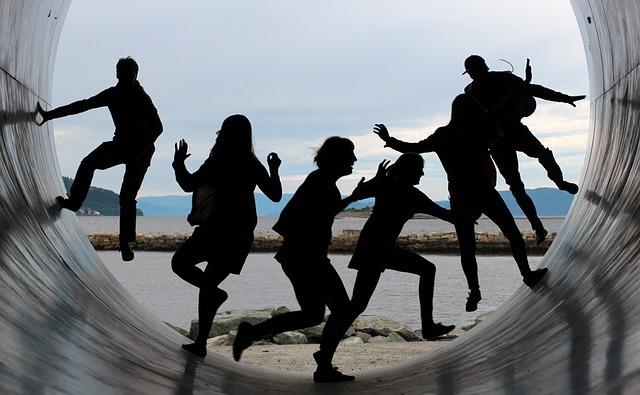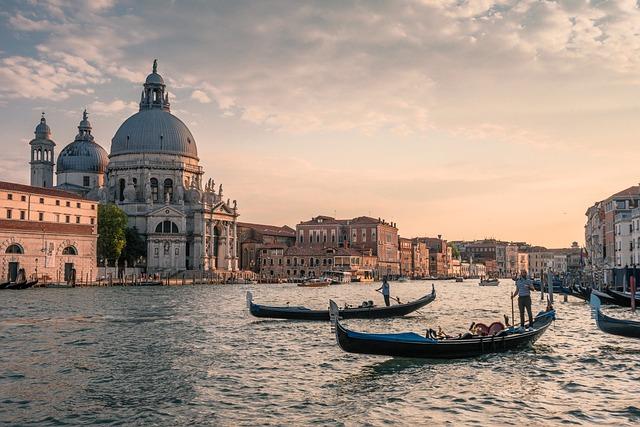- Introduction
- Water Conservation Practices
- Conservation Benefits for Ecosystems
- Community Involvement in Preservation
- Challenges in Waterway Preservation
- Conclusion
- FAQs
Introduction
Waterways are essential ecosystems that provide various benefits to both nature and human communities. In this article, we will explore the importance of preserving waterways and how conservation efforts can positively impact these vital resources.
Water Conservation Practices
Water conservation practices are crucial for ensuring the sustainability of our water resources. Implementing measures such as rainwater harvesting, efficient irrigation systems, and reducing water waste at home can all contribute to preserving our waterways for future generations

(Image: Pixabay/@MonicaMaxWest)
Furthermore, adopting sustainable farming practices that minimize water usage and pollution can help protect water quality and aquatic biodiversity. By promoting responsible water consumption, we can safeguard the health of our rivers, lakes, and oceans.
Government policies and regulations play a significant role in promoting water conservation at a larger scale. Through legislation and incentives, authorities can encourage industries and individuals to prioritize water efficiency and reduce their environmental impact.
Conservation Benefits for Ecosystems
Preserving waterways supports diverse ecosystems and wildlife habitats. Wetlands, rivers, and coastal areas rely on healthy water systems to thrive, providing critical breeding grounds for numerous species

(Image: Pixabay/@MonicaMaxWest)
Protecting water quality and quantity is essential for maintaining biodiversity and ecological balance. Conserving water habitats allows plants, animals, and microorganisms to continue their natural life cycles without disruption, contributing to overall ecosystem resilience.
Additionally, undisturbed waterways help regulate climate patterns, mitigate floods, and filter pollutants, enhancing environmental sustainability and supporting ecosystem services that benefit society as a whole.
Community Involvement in Preservation
Engaging communities in water preservation initiatives is vital for long-term success. Educating the public about the value of water resources and the impact of human activities on water quality can foster a sense of responsibility and stewardship

(Image: Pixabay/@Broesis)
Volunteer programs, eco-tours, and hands-on conservation projects can empower individuals to take concrete actions to protect local water bodies. By creating opportunities for direct involvement, communities can develop a deeper connection with their environment and work together towards sustainable water management.
Collaborating with indigenous peoples and traditional knowledge holders is also essential in waterway preservation. Incorporating native perspectives and practices can enhance conservation strategies, drawing on centuries-old wisdom and ensuring respect for the land and water.
Challenges in Waterway Preservation
Despite the importance of water preservation, various challenges persist in safeguarding our waterways. Pollution from agricultural runoff, industrial discharges, and urban development continues to pose a threat to water quality and aquatic ecosystems

(Image: Pixabay/@RichardsDrawings)
Climate change further exacerbates these issues, leading to altered hydrological cycles, increased water scarcity, and more frequent extreme weather events. Adapting to these changing conditions requires innovative solutions and collaborative efforts across sectors and regions.
Balancing competing demands for water resources, addressing outdated infrastructure, and navigating conflicting interests among stakeholders are additional complexities that must be addressed to ensure effective waterway preservation in the face of evolving environmental pressures.
Conclusion
Preserving waterways is essential for sustaining biodiversity, promoting ecosystem health, and securing clean water sources for future generations. By implementing conservation practices, engaging communities, and addressing challenges collectively, we can protect our precious water resources and contribute to a more sustainable and resilient environment.
FAQs
Why is waterway preservation important?
Waterway preservation is important because it helps maintain biodiversity, supports ecosystem functions, and ensures access to clean water for human use. By protecting water resources, we can safeguard the health of natural habitats and promote sustainable water management practices.
What can individuals do to contribute to waterway preservation?
Individuals can contribute to waterway preservation by practicing water conservation at home, participating in community clean-up efforts, supporting conservation organizations, and advocating for sustainable water policies. Small actions can make a big difference in protecting our waterways.
```
